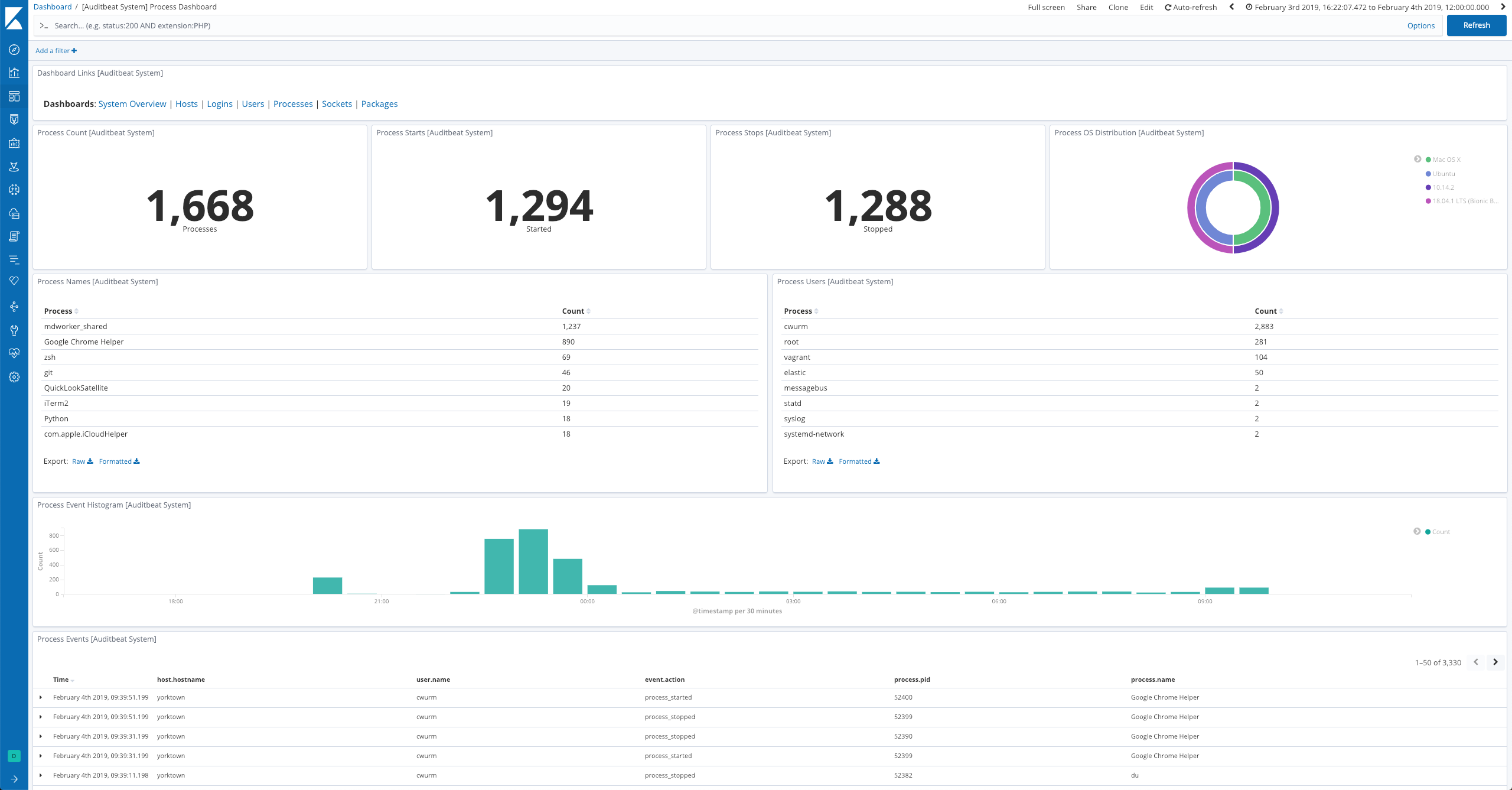IMPORTANT: No additional bug fixes or documentation updates
will be released for this version. For the latest information, see the
current release documentation.
System process dataset
edit
IMPORTANT: This documentation is no longer updated. Refer to Elastic's version policy and the latest documentation.
System process dataset
editThis functionality is in beta and is subject to change. The design and code is less mature than official GA features and is being provided as-is with no warranties. Beta features are not subject to the support SLA of official GA features.
This is the process dataset of the system module. It generates an event when
a process starts and stops.
It is implemented for Linux, macOS (Darwin), and Windows.
Configuration options
edit-
process.state.period -
The interval at which the dataset sends full state
information. If set this will take precedence over
state.period. The default value is12h. -
process.hash.max_file_size -
The maximum size of a file in bytes for which
Auditbeat will compute hashes. Files larger than this size will not be
hashed. The default value is 100 MiB. For convenience units can be specified as
a suffix to the value. The supported units are
b(default),kib,kb,mib,mb,gib,gb,tib,tb,pib,pb,eib, andeb. -
process.hash.hash_types -
A list of hash types to compute when the file
changes. The supported hash types are
blake2b_256,blake2b_384,blake2b_512,md5,sha1,sha224,sha256,sha384,sha512,sha512_224,sha512_256,sha3_224,sha3_256,sha3_384,sha3_512, andxxh64. The default value issha1.
Example dashboard
editThe dataset comes with a sample dashboard:

Fields
editFor a description of each field in the dataset, see the exported fields section.
Here is an example document generated by this dataset:
{
"@timestamp": "2017-10-12T08:05:34.853Z",
"event": {
"action": "process_stopped",
"dataset": "process",
"kind": "event",
"module": "system"
},
"message": "Process zsh (PID: 9086) by user elastic STOPPED",
"process": {
"args": [
"zsh"
],
"entity_id": "+fYshazplsMYlr0y",
"executable": "/bin/zsh",
"hash": {
"sha1": "33646536613061316366353134643135613631643363383733653261373130393737633131303364"
},
"name": "zsh",
"pid": 9086,
"ppid": 9085,
"start": "2019-01-01T00:00:01Z",
"working_directory": "/home/elastic"
},
"service": {
"type": "system"
},
"user": {
"effective": {
"group": {
"id": "1000"
},
"id": "1000"
},
"group": {
"id": "1000",
"name": "elastic"
},
"id": "1000",
"name": "elastic",
"saved": {
"group": {
"id": "1000"
},
"id": "1000"
}
}
}